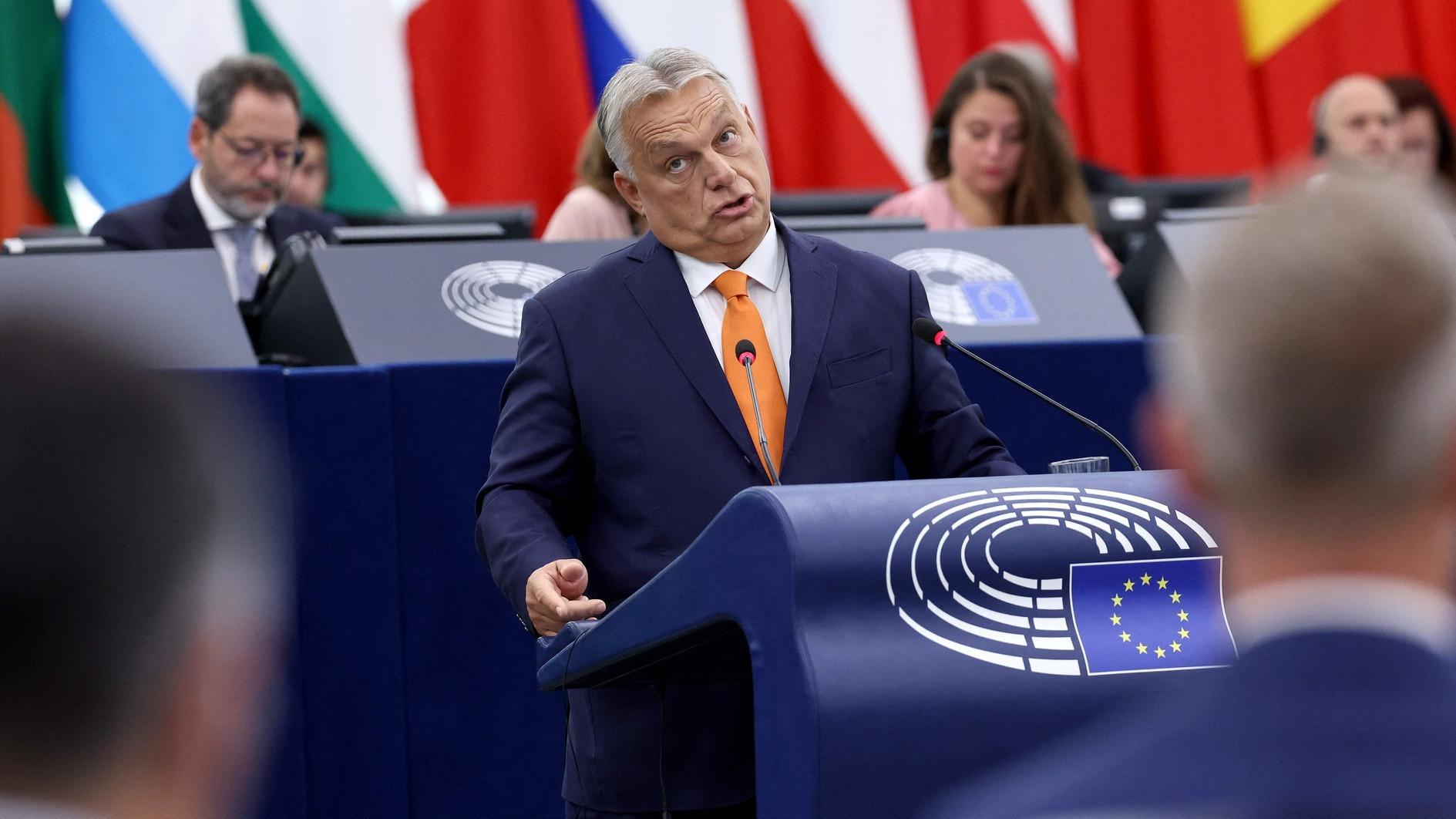
Top EU officials took turns assailing Hungary's Viktor Orban on Wednesday over democratic backsliding and his Russia-friendly stance on Ukraine, as the nationalist leader delivered a headline address to the bloc's parliament.
As President Vladimir Putin's closest ally within the European Union, Orban's government is at loggerheads with its partners on a host of issues, from stalling aid for Kiev, to what the bloc sees as weakening the rule of law at home.
In Strasbourg to present the "priorities" of Hungary's norm-defying EU presidency, Orban declared that "the European Union needs to change, and I would like to convince you about that today."
The hard-right prime minister called it the "most serious period" in EU history, with the Ukraine war on its doorsteps, escalating conflict in the Middle East and a "migration crisis" he said could cause the Schengen open border system to "fall apart."
Commission chief Ursula von der Leyen, speaking right after Orban, pushed back hard, taking aim at Budapest's stalling of EU support for Kiev and refusal to join Western efforts to arm Ukraine to fight off Moscow.
"There is only one path to achieve a just peace for Ukraine and for Europe, we must continue to empower Ukraine's resistance with political, financial and military support," von der Leyen said.
When Hungary assumed the EU's rotating six-month presidency in July, Orban went off script: embarking on an uncoordinated Ukraine "peace mission" to Kiev, Moscow and Beijing that sparked ire in Brussels.
In a forceful address von der Leyen targeted Orban's eagerness to push for an early peace deal with Putin over the Ukraine invasion, assailing those "who blame this war not on the invader but the invaded, not on Putin's lust for power, but on Ukraine's thirst for freedom."
In response to Orban's uncoordinated trips, von der Leyen ordered top officials to skip a series of meetings organised by the Hungarian presidency, a de facto boycott, and his address to the EU parliament was twice delayed.
The commission chief also skewered Orban's stance on migration, accusing his government of "throwing problems over your neighbour's fence" with the early release of convicted people-traffickers.
And she took aim at a Hungarian visa scheme for Russian nationals, calling it "a back door for foreign interference."
Since returning to lead his country in 2010, Orban has moved to curb civil rights and tighten his grip on power, repeatedly clashing with Brussels over rule-of-law issues.
But Orban has pointed at hard-right electoral gains from Italy to the Netherlands and Austria, and the rising influence of a Hungarian-led new group in the EU parliament, the Patriots for Europe, as evidence the political climate in Europe is slowly but surely shifting in his favour.